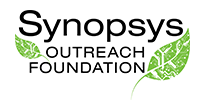There are project application limits for high schools, middle schools, teachers and non-RRI organizations. If necessary, participating schools decide how to limit applications in order to meet these limits.
See the Who Can Sponsor page about Parent sponsored projects.
SCHOOL LIMITS:
- 30 project applications for each middle school
- 30 project applications for each high school
NON-SCHOOL ORGANIZATION LIMIT:
- 30 project applications
TEACHER APPLICATION LIMITS are determined by the number of scientific category award-winning projects a teacher sponsored the previous year. See the 2024 list of winning projects. Sponsored awards do not count in the total.
| # projects that won category awards in prior year | # sponsored projects allowed this year |
|---|---|
| 0 | 4 (also applies to new teachers) |
| 1 | 4 |
| 2 | 8 |
| 3 | 8 |
| 4 or more | 12 |
Teacher limits were modified in 2020:
- 4 project applications for teachers with 0-1 category award-winning projects
- 8 project applications for teachers with 2 or 3 category award-winning projects
RESEARCH CLASS LIMIT: upon request, up to an additional 36 project applications for participants in a high school research class. Research class must take place during school hours, and only one research class per school is permitted to submit such a request.
SCIENCE CLUB OR EQUIVALENT LIMIT: upon request, up to an additional 20 project applications for participants in a high school science club or equivalent. This is for schools with no research class where a teacher meets with students after school once or twice a week with active oversight.
A high school may request additional projects for either one research class or one science club, but not both.
A high school teacher supervising a Research Class or school-based Science Club or equivalent may request from the SRC additional project application slots here.

